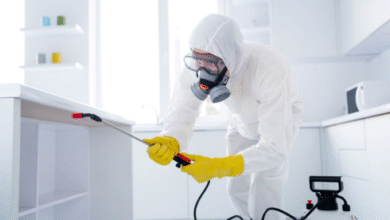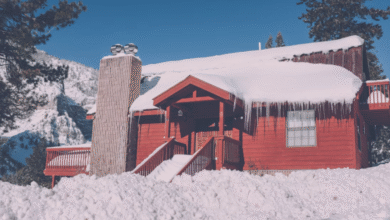Not All Water Is Created Equal: Why More Kingston Homes Are Choosing Reverse Osmosis

You turn on the tap, fill a glass, and take a sip. Tastes… okay, maybe. Maybe not. Maybe you’ve gotten used to that faint chlorine edge, or the slight metallic tang that shows up now and then. Or maybe your gut’s been quietly telling you for a while now that your water isn’t quite as clean as it could be.
If that’s hitting a little close to home—and you’re living in Kingston, WA—you’re not imagining things. Our water here can be unpredictable. Depending on whether you’re on a municipal system or private well, you might be dealing with excess minerals, chlorine, sediment, or even trace contaminants that standard filters just don’t catch.
But there’s a fix that’s been gaining traction for good reason: reverse osmosis drinking water systems. More specifically, smart, compact, under-sink units that deliver water you can actually trust—and that tastes as good as it should.
Let’s unpack what reverse osmosis is, why it works, and why it might just be the clean water solution you didn’t know you needed.
So, What Exactly Is Reverse Osmosis?
Reverse osmosis (or RO, for short) sounds scientific because, well, it is. But don’t let that intimidate you. At its core, RO is just a highly efficient way to purify water.
In simple terms, it works by pushing water through a semi-permeable membrane that filters out the stuff you don’t want—like lead, chlorine, fluoride, arsenic, nitrates, bacteria, and a whole range of other microscopic freeloaders. What you’re left with? Water that’s about as close to pure as you can get at home.
The result isn’t just safer water—it’s better-tasting water. Tea, coffee, and soups made with RO water? They just hit different.
Why Kingston Homes Are Going the RO Route
In a place like Kingston, WA, water quality can vary a lot depending on where you live. Some homes pull from private wells, others from municipal sources. Both have their own quirks.
Well water might be heavy on iron or sediment. City water might be treated, but that often means chlorine—and sometimes the “cure” brings its own problems. That’s why more homeowners are turning to the Kingston WA RO filter options offered by local specialists. These filters don’t just “help a little”—they strip your water down to its cleanest core.
No more mystery floaters. No more bottled water backup plan. Just pure water on demand, right from your kitchen sink.
RO Systems: What They Do (and Don’t)
Let’s be real. Not every filter does what it claims. Some pitcher filters remove a bit of chlorine or improve taste, but they’re not built for deep purification. RO systems, on the other hand, are in a league of their own.
A typical RO system includes:
- Pre-filters – for sediment and chlorine (which would otherwise damage the RO membrane)
- The RO membrane – the heart of the system, removing up to 99% of contaminants
- Post-filters – to polish the water and enhance taste
- A storage tank – so you always have filtered water ready
But it’s not perfect for every scenario. If you’re on extremely hard water, you might need a softener in tandem. And yes, RO systems can waste a little water during the filtering process—but newer models are way more efficient than they used to be.
The upside? You get clean, safe water that’s free from the things that shouldn’t be there. That’s worth a little extra engineering.
Is It Safe? (And Other RO Myths, Busted)
One common concern people raise is that RO systems remove everything—even beneficial minerals. It’s true: calcium, magnesium, and others are reduced. But here’s the thing—most of us get those minerals from food, not water. And the peace of mind that comes with truly clean water? It outweighs that minor detail for most people.
Plus, many RO systems now include remineralization stages that reintroduce healthy minerals after filtration—so you get the best of both worlds.
Another myth? That it’s hard to install or maintain. In reality, most under-sink RO units can be installed in a couple hours by a pro (or a patient DIYer), and filter changes? Once or twice a year. Not bad for what it does.
Real Reviews, Real Results
A lot of Kingston locals who’ve installed RO systems have the same thing to say afterward: “Why didn’t I do this sooner?” People notice clearer ice cubes, better coffee, and the strange satisfaction of seeing nothing in their glass but water.
If you poke around clean water system reviews online—especially for local installations—you’ll see a pattern: consistently better taste, fewer plumbing issues, less need for bottled water, and real peace of mind.
It’s one of those upgrades that doesn’t scream for attention… until you realize how much better life is when your water just works.
So… Should You Go RO?
If you’re already second-guessing your tap water, yes. A reverse osmosis system is a solid step toward reclaiming trust in what comes out of your faucet.
It’s not a gimmick. It’s not just a filter. It’s a multi-stage clean water system that takes your drinking water from “eh” to exceptional. And in a place like Kingston, where water can throw some surprises your way, that extra protection is more than worth it.
Reverse osmosis drinking water, Kingston WA RO filter, clean water system—these aren’t just buzzwords. They’re the beginning of a quieter, cleaner, healthier daily habit. And once you taste the difference, it’s pretty hard to go back.
So maybe it’s time to take that sip—and never second-guess your water again.




